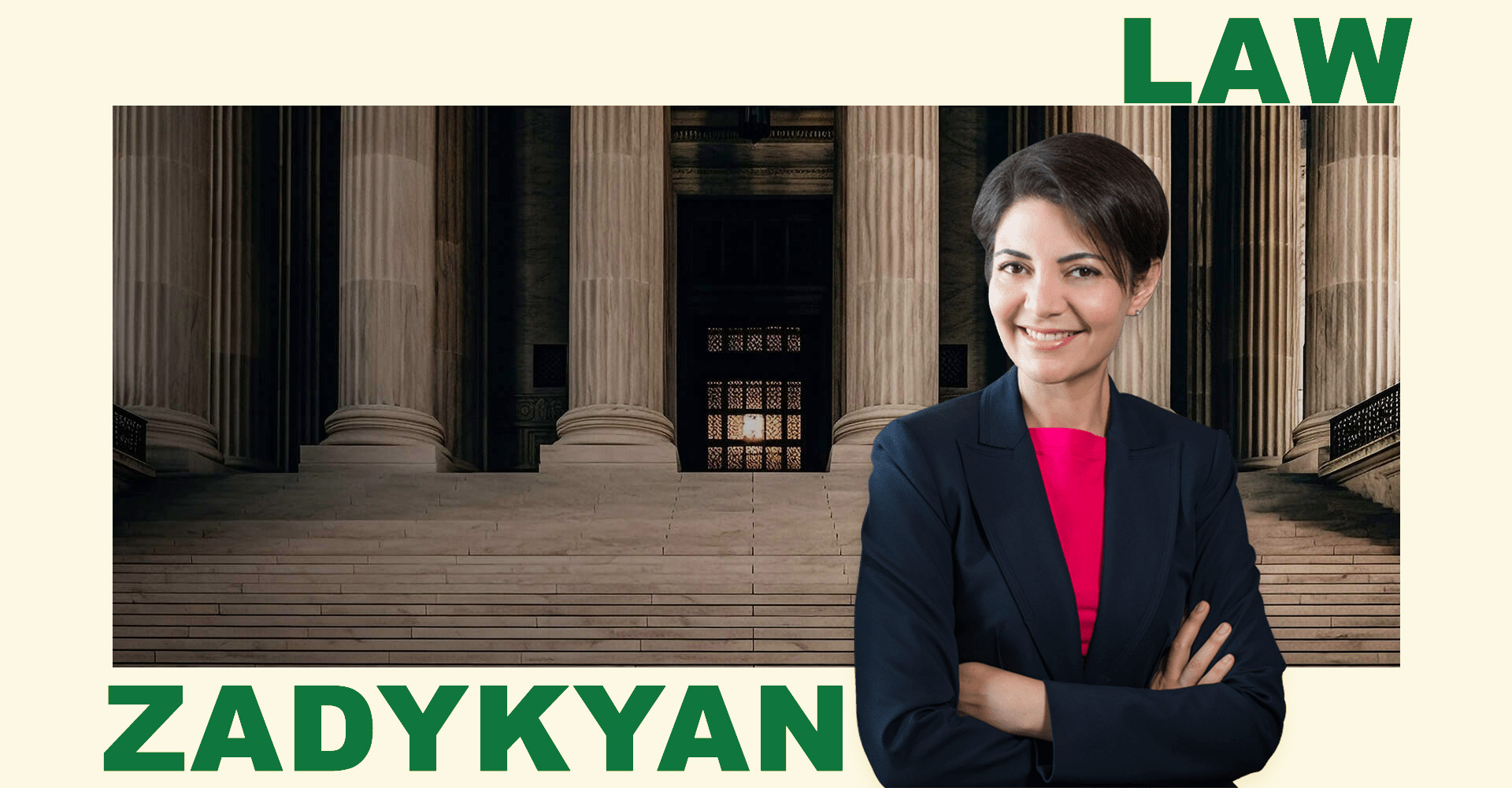Sherman Oaks Family-Based Visa Attorney

Secure Green Cards for Family Members with Our Legal Support
If you are a United States citizen or lawful permanent resident but your immediate family member is not, you have the unique ability to "sponsor" them for a special category of green card. These family-based immigrant visas can grant lawful permanent residency to both "preference relatives" and "immediate relatives."
Discover Your Visa Options Today - Call 747-900-0099 or contact us online for a complimentary consultation. Our services are also available in Russian and Armenian.
Navigating the family-based immigrant visa process can be confusing. Our Sherman Oaks family-based visa lawyer Anaida Zadykyan at Zadykyan Law can guide you through each step, identifying options available to you and your family and the most efficient, pragmatic means of seeking your family-based green card.

Company
Zadykyan Law
Phone
747-900-0099
Lawer
Anaida Zadykyan
Location
Sharman Oaks, CA
Understanding Family-Based Visa Sponsorship Categories
As mentioned above, there are two types of sponsorship categories. Each has its own set of eligibility requirements, quotas, and application timelines.
Immediate relatives are defined as any of the following:
Parent of a U.S. citizen
Spouse of a U.S. citizen
Minor, unmarried children of a U.S. citizen
Immediate relative visas are unlimited annually, ensuring no wait times for availability. Applicants wil still have to wait some number of months for the United States Citizenship and Immigration Services (USCIS) to process and accept their applications, but otherwise, there should be no arbitrary delays.
Preference relatives include:
Siblings of a U.S. citizen (if the citizen is at least 21 years old)
Adult, married children of a U.S. citizen
Unmarried children of a U.S. lawful permanent resident
Spouse of a U.S. lawful permanent resident
Lawful permanent residents, or green card holders, are able to sponsor their spouses and unmarried children, but do not receive the "immediate relatives" classification - and the ease and priority that comes with it. It's important to note that extended family members are not eligible for sponsorship. This is intentional, as U.S. citizens and green card holders are intended to only be able to sponsor their more immediate family members. However, should a citizen sponsor their parents, for example, and they eventually become citizens, the naturalized parent would be able to sponsor their sibling (the original citizen's aunt or uncle) under the preference relative category. This process is sometimes referred to as "chain migration," and, despite its politicization, is completely legal and acceptable.
Family-Based Visa Support in Sherman Oaks
In Sherman Oaks, the journey through the family-based visa process can often feel overwhelming, especially for families navigating the complexities of U.S. immigration laws. This is particularly true for marriage visas, where couples must meet strict requirements to prove the legitimacy of their relationship. Whether you are a U.S. citizen looking to bring a relative from abroad or a lawful permanent resident seeking to reunite with family members, understanding the nuances of the family-based visa process is crucial. Local resources, such as the City of Los Angeles and the U.S. Citizenship and Immigration Services (USCIS), provide valuable information, but the process can still be fraught with challenges.
Many families in Sherman Oaks face common pain points, such as lengthy processing times, documentation requirements, and the emotional toll of separation. Our team at Zadykyan Law is dedicated to alleviating these concerns. We understand that each family's situation is unique, and we are committed to pro Welcome to Zadykyan Law I'm here if you have any questions or need help! guidance tailored to your specific needs.
Wait Times for Preference Relatives
Only 140,000 green cards are issued to preference relatives in any given year. Often twice as many or more file for sponsorship in that same period, leading to extremely long wait times. The allocation process is somewhat complex, but some categories of relative types get more green cards than others; for example, adult, unmarried children of U.S. citizens get the highest preference, while siblings of U.S. citizens receive the lowest. Additionally, there are caps on visas issued to certain countries, meaning if you are attempting to sponsor a relative from popular countries of origin, like Mexico and the Philippines, you are likely to endure an even longer wait than average.
Adult, unmarried children of U.S. citizen (first preference) - 7 years if not from Mexico or the Philippines
As of February 2020, applicants faced the following average wait times in each preference relative category:
Spouses or children of U.S. lawful permanent residents (second preference) - presently no substantial wait for spouses and minor children, 6 years for adult unmarried children not from Mexico or the Philippines
Married adult children of U.S. citizens (third preference) - 13 years if not from Mexico or the Philippines
Siblings of U.S. citizens (fourth preference) - 14 years if not from Mexico, India, or the Philippines


Why Hire Zadykyan Law?
Individualized Approach
- We take the time to listen, answer your questions and create a tailored strategy to accomplish your goals.
Compassionate Representation
- We care about our clients and go the extra mile to ensure every detail is taken care of throughout the process.
Affordable & Accessible
- We offer consultations through phone, video, WhatsApp & Zoom for your convenience and safety.
Flexible
- We offer same-day, after-hour, and weekend appointments to meet your busy schedule.
Trilingual
- We serve our clients in English, Russian, and Armenian.
Contact Zadykyan Law Today
A Law Firm Focused on Your Future
Address: 15206 Ventura Blvd, Suite 209, Sherman Oaks, CA 91403
Call us: 747-900-0099